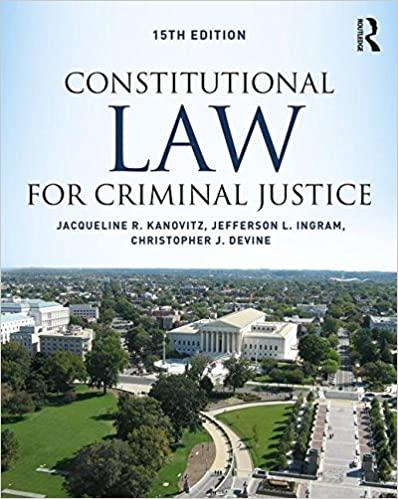Question
A New Jersey law allowed reimbursements of money to parents who sent their children to school on buses operated by the public transportation system. Children
A New Jersey law allowed reimbursements of money to parents who sent their children to school on buses operated by the public transportation system. Children who attended Catholic schools also qualified for this transportation subsidy.
InEverson v. Board of Education of the Township of Ewing(1947), a divided Court held that the law did not violate the Constitution. Justice Black argued that services like bussing, police, and fire protection for parochial schools are "separate and so indisputably marked off from the religious function" that for the state to provide them would not violate the Bill of Rights. The law did not pay money to parochial schools, nor did it support them directly in any way. It was simply a law enacted as a "general program" to assist parents of all religions with getting their children to school.
Source: Oyez,Everson v. Board of Education of the Township of Ewing(1947)
- Identify the constitutional provision that is common in bothEverson v. Board of Education of the Township of Ewing(1947) andEngel v. Vitale(1962).
- Based on the constitutional provision identified, explain how the facts ofEverson v. Board of Education of the Township of Ewingled to a different holding than the holding inEngel v. Vitale.
- Explain how members of the public who disagree with the holding inEverson v. Board of Education of the Township of Ewingcould act to limit its impact.
Step by Step Solution
There are 3 Steps involved in it
Step: 1

Get Instant Access to Expert-Tailored Solutions
See step-by-step solutions with expert insights and AI powered tools for academic success
Step: 2

Step: 3

Ace Your Homework with AI
Get the answers you need in no time with our AI-driven, step-by-step assistance
Get Started


